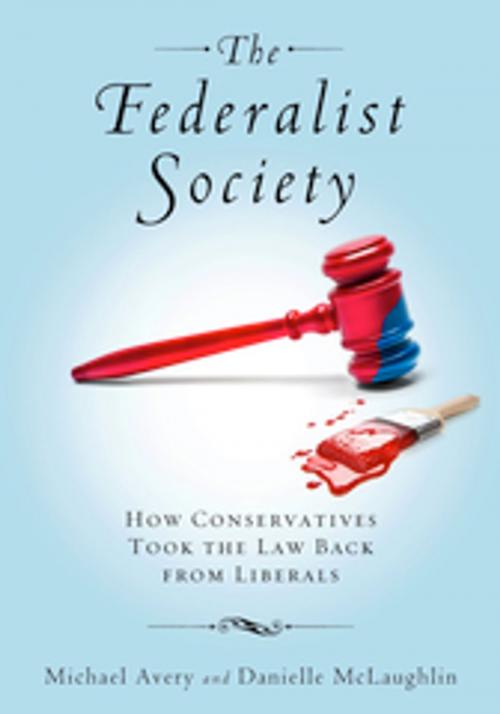The Federalist Society
How Conservatives Took the Law Back from Liberals
Nonfiction, Reference & Language, Law, History, Americas, United States, Social & Cultural Studies, Political Science| Author: | Michael Avery, Danielle McLaughlin | ISBN: | 9780826518798 |
| Publisher: | Vanderbilt University Press | Publication: | April 15, 2013 |
| Imprint: | Vanderbilt University Press | Language: | English |
| Author: | Michael Avery, Danielle McLaughlin |
| ISBN: | 9780826518798 |
| Publisher: | Vanderbilt University Press |
| Publication: | April 15, 2013 |
| Imprint: | Vanderbilt University Press |
| Language: | English |
Over the last thirty years, the Federalist Society for Law and Public Policy Studies has grown from a small group of disaffected conservative law students into an organization with extraordinary influence over American law and politics. Although the organization is unknown to the average citizen, this group of intellectuals has managed to monopolize the selection of federal judges, take over the Department of Justice, and control legal policy in the White House.
Today the Society claims that 45,000 conservative lawyers and law students are involved in its activities. Four Supreme Court Justices--Antonin Scalia, Clarence Thomas, John Roberts, and Samuel Alito--are current or former members. Every single federal judge appointed in the two Bush presidencies was either a Society member or approved by members. During the Bush years, young Federalist Society lawyers dominated the legal staffs of the Justice Department and other important government agencies.
The Society has lawyer chapters in every major city in the United States and student chapters in every accredited law school. Its membership includes economic conservatives, social conservatives, Christian conservatives, and libertarians, who differ with each other on significant issues, but who cooperate in advancing a broad conservative agenda.
How did this happen? How did this group of conservatives succeed in moving their theories into the mainstream of legal thought?
What is the range of positions of those associated with the Federalist Society in areas of legal and political controversy? The authors survey these stances in separate chapters on
regulation of business and private property;
race and gender discrimination and affirmative action;
personal sexual autonomy, including abortion and gay rights; and
American exceptionalism and international law.
Over the last thirty years, the Federalist Society for Law and Public Policy Studies has grown from a small group of disaffected conservative law students into an organization with extraordinary influence over American law and politics. Although the organization is unknown to the average citizen, this group of intellectuals has managed to monopolize the selection of federal judges, take over the Department of Justice, and control legal policy in the White House.
Today the Society claims that 45,000 conservative lawyers and law students are involved in its activities. Four Supreme Court Justices--Antonin Scalia, Clarence Thomas, John Roberts, and Samuel Alito--are current or former members. Every single federal judge appointed in the two Bush presidencies was either a Society member or approved by members. During the Bush years, young Federalist Society lawyers dominated the legal staffs of the Justice Department and other important government agencies.
The Society has lawyer chapters in every major city in the United States and student chapters in every accredited law school. Its membership includes economic conservatives, social conservatives, Christian conservatives, and libertarians, who differ with each other on significant issues, but who cooperate in advancing a broad conservative agenda.
How did this happen? How did this group of conservatives succeed in moving their theories into the mainstream of legal thought?
What is the range of positions of those associated with the Federalist Society in areas of legal and political controversy? The authors survey these stances in separate chapters on
regulation of business and private property;
race and gender discrimination and affirmative action;
personal sexual autonomy, including abortion and gay rights; and
American exceptionalism and international law.















